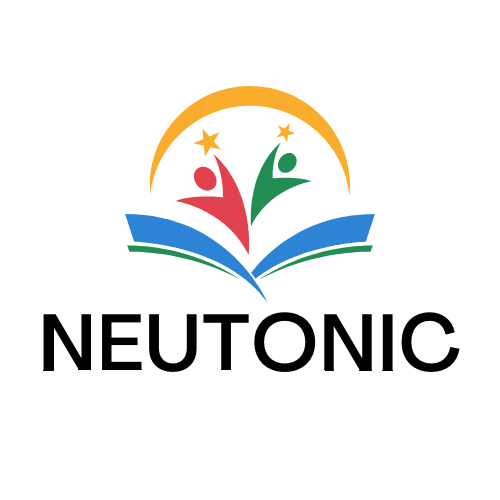Pursuing an early childhood education associate degree can be a transformative step for anyone passionate about shaping young minds. This degree not only opens doors to rewarding career opportunities but also equips you with the skills needed to make a lasting impact on children’s lives.
In a world where the foundation of learning is crucial, understanding child development and effective teaching strategies is essential. With this degree, you’ll gain insights into creating nurturing environments that foster growth and creativity. Whether you aim to work in preschools, childcare centers, or even start your own educational venture, an early childhood education associate degree is your key to success in this fulfilling field.
Key Takeaways
- Foundation for Career Growth: An early childhood education associate degree provides essential skills and knowledge, paving the way for rewarding careers in early childhood settings.
- Core Curriculum Focus: The program includes crucial courses such as child development, classroom management, and curriculum planning, ensuring well-rounded preparation for future educators.
- Hands-On Experience: Students gain practical insights through internships and practicums, which enhance their teaching skills and effectiveness in real-world classroom environments.
- Diverse Career Opportunities: Graduates can pursue various roles such as preschool teachers, childcare center directors, and family support specialists, with growing demand for qualified professionals in the field.
- Transfer Pathways Available: Many programs allow credits earned towards an associate degree to be transferred for a bachelor’s degree in education, supporting continued professional development.
- Financial Aid Options: Various funding opportunities, including federal and state grants, scholarships, and loans, can help mitigate the costs associated with obtaining the degree.
Early Childhood Education Associate Degree
An early childhood education associate degree focuses on methods to foster children’s growth and cognitive development from birth to age eight. This degree typically comprises 60 credit hours and covers topics like child psychology, curriculum planning, and developmental milestones.
I explored several key components of this program.
- Core Courses: Core courses delve into child development theories, classroom management techniques, and effective communication strategies with parents and caregivers. Each course aims to prepare graduates to support children’s emotional and social needs.
- Hands-On Experience: Hands-on experience through practicums or internships is crucial in this degree. Students gain real-world insights by working directly with children in classroom settings, enhancing their teaching efficacy.
- Licensing and Certification: Depending on state requirements, graduates may pursue additional licensing or certification. This step can expand job opportunities within public schools and early childhood programs.
- Career Opportunities: Graduates often find roles as preschool teachers, childcare center directors, or family support specialists. Employment in specific areas may require further education or certification.
- Transfer Opportunities: Many programs offer options to transfer credits toward a bachelor’s degree in education. This pathway allows for continued professional development and career advancement.
An early childhood education associate degree serves as a foundation for nurturing young learners and contributes significantly to the educational field.
Benefits of an Early Childhood Education Associate Degree
 The early childhood education associate degree offers numerous benefits, particularly in career opportunities and personal development.
The early childhood education associate degree offers numerous benefits, particularly in career opportunities and personal development.
Career Opportunities
Career opportunities expand significantly with an early childhood education associate degree. Graduates can pursue roles such as preschool teacher, childcare center director, or family support specialist. Positions in public and private settings include preschool programs, daycare facilities, and after-school care. Demand for early childhood educators continues to grow, as more families seek quality care and education for their children. Various organizations, from nonprofits to educational institutions, often seek trained professionals to foster children’s development in supportive environments.
Personal Development
Personal development enhances with an early childhood education associate degree. I gain essential skills in communication, problem-solving, and leadership. Coursework often emphasizes child psychology and developmental milestones, promoting a deeper understanding of children’s needs. Practical experience through practicums allows me to apply theoretical knowledge in real settings, building confidence in my teaching abilities. Moreover, the degree cultivates a sense of empathy and patience, key traits necessary for supporting young learners. This educational journey lays the groundwork for lifelong learning and opportunities for further education, paving the way for personal growth and professional advancement.
Program Structure and Curriculum
The early childhood education associate degree program consists of a structured curriculum designed to equip students with the knowledge and skills necessary for effective teaching. It encompasses core and elective courses that ensure a comprehensive educational experience.
Core Courses
Core courses form the foundation of the degree program. Required classes typically include:
- Child Development: Covers the stages of physical, emotional, and cognitive growth in children.
- Curriculum Planning: Focuses on creating age-appropriate lesson plans that foster learning.
- Child Psychology: Explores the psychological principles affecting children’s behavior and development.
- Classroom Management: Provides strategies for maintaining a positive learning environment.
These courses ensure a deep understanding of educational practices and child-centered pedagogy. Students engage in theoretical coursework and practical applications through hands-on experiences.
Elective Courses
Elective courses offer students the flexibility to tailor their education according to specific interests. Common options include:
- Special Needs Education: Addresses strategies for teaching children with diverse learning needs.
- Family Engagement: Focuses on involving families in the educational process and understanding their impact on child development.
- Cultural Competence: Explores the importance of cultural awareness in early childhood education.
These electives enhance the program by allowing students to gain specialized knowledge, preparing them for diverse roles in various educational settings.
Admission Requirements and Application Process
Admission requirements for an early childhood education associate degree typically include a high school diploma or equivalent. Some programs may accept students with a GED. Academic records are reviewed to ensure satisfactory completion of relevant coursework.
I often encounter standard prerequisites that include proof of immunizations and a background check. Institutions may require letters of recommendation or personal statements to assess an applicant’s passion for early childhood education.
The application process generally involves submitting an application form along with transcripts. Students often provide any additional requirements as specified by the program, such as essays or portfolios.
Once the application is submitted, schools may invite prospective students for an interview. This meeting provides an opportunity for applicants to discuss their goals and aspirations in early childhood education.
Upon acceptance, students typically receive an enrollment package containing information regarding orientation, course registration, and financial aid options. Familiarizing myself with these details ensures a smooth transition into the program.
Financial Considerations
Completing an early childhood education associate degree involves various financial aspects, including tuition costs and available financial aid options.
Tuition Costs
Tuition costs for an early childhood education associate degree vary widely, depending on the institution. Public community colleges may charge between $3,000 and $10,000 per year, while private colleges can range from $10,000 to $30,000 annually. Additionally, fees for materials, books, and supplies may add another $500 to $1,500 to the overall expense. It’s essential to research specific programs to understand the total cost, including any potential lab or technology fees that may apply.
Financial Aid Options
Numerous financial aid options exist for students pursuing an early childhood education associate degree. Federal financial aid, such as Pell Grants, provides funding based on financial need, while Federal Direct Loans offer low-interest options for eligible students. State grants and scholarships, which can range from $1,000 to $5,000, may also be available based on residency or academic performance. Many institutions provide their own scholarships for students in education programs, further reducing the financial burden. Completing the Free Application for Federal Student Aid (FAFSA) access aid opportunities and potential loan forgiveness options, particularly for graduates who work in underserved communities.
Pursuing an early childhood education associate degree is a transformative step for anyone passionate about shaping young minds. This degree not only opens doors to fulfilling career paths but also enriches personal growth through hands-on experiences and essential skill development.
With a solid foundation in child development and effective teaching strategies, I’m confident graduates will thrive in various educational settings. The demand for skilled early childhood educators continues to rise, making this an opportune time to enter the field.
Whether you aim to work in preschools or childcare centers, this degree equips you to make a meaningful impact in children’s lives. Embrace the journey and unlock your potential in early childhood education.”




